#I'm at such an interesting part rn and I'm like...this is what historical fantasy Should be
Explore tagged Tumblr posts
Text
So far The Bird King by G. Willow Wilson isn't an instant favorite of mine, but it is good and it has so many fantastic elements going for it:
Historical fantasy set at the fall of Al-Andalus that takes the history part seriously
Nuanced look at religion (both Islam and Christianity) in a historical context
Platonic m/f best friend duo
Really compelling antagonist
Beautiful writing and thoughts
Some kind of allegorical journey perhaps?? If so I'm super into it
Very pretty descriptions
Kinda weird
I'm a little over halfway done, but impressed so far.
#the bird king#g. willow wilson#I'm at such an interesting part rn and I'm like...this is what historical fantasy Should be#instead of the silly stuff that just takes the aesthetics of a historical era and nothing else#taking the beliefs and events seriously adds up to a much more intriguing story#so far I don't think it would be a keeper for me bc idk if I'd want to reread it#but I'm glad I'm reading it now
6 notes
·
View notes
Note
You seem like an incredibly well read person, plus someone with a lot of insight into intimacy because of your work. So, in light of your romance book reviews, which are an absolute highlight on your patreon, do you have any insight into what is needed/suggested for a good romance novel?
g o d this is so fucking hard and also really fun to chew on. I want to preface this by saying this is ENTIRELY subjective and based completely on what I *PERSONALLY* find that I enjoy in a romance. this isn't, like, an objective guide on how to write a romance that doesn't suck. that doesn't exist because people like different things, and I'm speaking from one perspective.
also I should say that my preferred flavor of romance novel is solidly contemporary. I haven't read many historicals, certainly not enough to opine well on them, I don't do those mafia dark romances or whatever the fuck, and I've barely dabbled at all in any kind of fantasy romance, whether they're full high fantasy or witchy urban fantasy stories. (although I'm about to do one of the latter next month, you can vote for a book on my patreon rn!)
having gotten all of those caveats out of the way, here's some shit I like and dislike:
there are exceptions to this but broadly, I prefer a POV for everyone involved in the relationship. to me a romance where we're only seeing events from the POV of one member of the relationship automatically makes it seem like one person matters more in a dynamic where everyone should be of equal importance. also, god, if the plot's really going to hinge on not knowing what's going on in one partner's head suggests that miscommunication is going to be a pretty critical part of the plot, and I hate that shit. TALK TO EACH OTHER. I'LL KILL YOU.
on that note, there needs to be an actual compelling reason why the characters can't be together, okay? the #1 driving tension of every romance is "why the fuck can't they be together yet" and you BETTER have a good answer. whether it's interpersonal or external forces, if there's a very easy solution to what's keeping them apart then your characters look dumb and I'm bored. one of the most frustrating romances I've ever read involved two characters who were mutually attracted to each from the JUMP, who refused to act on it because they were coworkers (neither of them in any position of authority of the other, nothing unprofessional or inappropriate about it) and they were "only" living in the same state for A YEAR. A FULL YEAR !!! shut up. get a grip and kiss each other.
now, having said that: whatever your bullshit reason is for these two characters to be interacting with each other, you need to COMMIT to that shit so hard that I, the reader, will feel silly for even questioning the logic. the worst offender I've ever seen on this front is D'Vaughn and Kris Plan a Wedding, which pulls its protagonists together via a reality TV competition and then just... promptly loses any interest in really dealing with the actual realities of being filmed 24/7? it's insanely distracting how little the book engages with its central hook, and was a huge point deduction for me. whereas you have, like, The Bride Test, a book with a premise that skirts dangerously close to a little bit of human trafficking but embraces the whole premise so wholeheartedly that you completely forget about the potentially horrific elements in there. who cares that Esme was bribed here with the promise of a green card if she seduces a man she's never met? there's whimsy happening! we've moved on! it's literally fine and she's in no danger except the danger of a BROKEN HEART.
this one is going to seem SO obvious but like. I need them to be actually like each other. I'm not saying they can't be mutually bitchy while they grow to like each other or anything, they don't have to always be NICE to each other, but there are so many M/F romances where the dude is just flat out fucking MEAN and condescending to the girl until he decides he wants to fuck her. and sometimes even after that! stop it! after a certain point I don't want her to fuck him I want her to run him over a car!!!! there's suuuuch a line between "guy I butt heads and exchange banter with but could fuck if we just got to know each other" and "man who hates me and is for real fucking bullying me."
"kisses only," "doors closed," whatever term they use for a romance novel without any sex scenes on page, I don't like it. listen: I know that they're not everybody's cup of tea, and I FULLY recognize that a lot of romance novel sex scenes are unfathomably cringe. and yet, I need them. partly because they're funny, but also because if this book wants me to be invested in the developing relationship between two adults who are supposed to be WILDLY sexually attracted to each other, then I want to see the damn sex. no matter how many bad similes or unfortunate adjectives it entails. and if you're not going to show me the sex, don't you dare have the characters gushing about how great it is. I'll be the judge of that, thank you very much. (I'm looking at you, Sorry, Bro.)
related: there's this thing that I call "Horny Wolf Syndrome," which is derived from this tweet:

initially I used it to refer to when previously sweet-tempered male romance protags inexplicably started talking like horny wovles during sex scenes - "LET ME SEE YOUR PRETTY CUNT ON MY COCK" and the like - but now I more generally use it to refer to scenarios in which characters of any gender completely dispense with their established personality while they fuck in order to fulfill a more broadly appealing, one-size-fits-all sexual fantasy. I hate that shit; if your characters act like completely unrecognizable people during sex, you didn't write very strong characters. one of my favorite things about writing sex scenes is that it's so SO interesting to see how their the characters' personal quirks translate into a setting that's very different from most other contexts, and it's deeply disappointing when authors take the easy route in favor of some pornhub dialogue.
one of the things that actually won my most recent read, Raiders of the Lost Heart, a HUGE amount of points with me was how frank the female lead was about initiating sex for the first time. it was completely in character for her and felt really different than any other book I've read, and honestly? it was a breath of fresh air.
158 notes
·
View notes
Text
Books I'm considering next
I mentioned before I add a new book every 5 sim years in my bookish save.. I'm torn about what book to add in next for Year 55. I know It seems too soon to be thinking about it bc I'm posting Year 50 right now, but in actuality I'm halfway through playing Year 53 so I need to give myself some time to finish reading and do prep like take notes, make a timeline.
Below are the ones I'm currently considering. They each have things about them that I really want to play and things about them that would be difficult to show with sims. Opinions welcome! I would love if somebody just tells me they have a clear favorite and then I don't have to decide lol.
In alphabetical order (info on each after the cut)
Clothes, Clothes, Clothes, Music, Music, Music, Boys, Boys, Boys (memoir)
Dust Child (historical fic)
Magic Lessons and the Practical Magic trilogy (fantasy)
Refugee High (nonfic)
Salvage the Bones ; Sing, Unburied Sing (fic)
She's Not There (memoir)
The Glass Castle ; Half Broke Horses (memoir)
To Kill A Kingdom (fantasy)
War and Speech (YA)
Clothes, Clothes, Clothes, Music, Music, Music, Boys, Boys, Boys (memoir of Viv Albertine, member of British female punk rock group The Slits. I'm interested in the aesthetics of this. She's also dated Mick from The Clash, has been friends with various ppl like Sid Vicous. But should I hold out for the possibility of a bands EP or GP in the future? And there's another memoir of hers I could also read before playing. It's more focused on her family rather than her music career)
Dust Child (historical fiction about a half Vietnamese half black man who is trying to find out who his father is in the present time intertwined with the story of two sisters who leave their small town to become bar girls in Saigon in past time. I actually haven't read this yet but I became interested in playing something with a Vietnamese storyline because of the tumblr @biplusco . Their Indochine cc collection made me want to play something set in Southeast Asia.
Magic Lessons; The Book of Magic; The Rules of Magic; Practical Magic (trilogy and a prequel following the Owens family of witches since the 1600s. You may know the movie Practical Magic. Of these books I've read Practical Magic and half of Magic Lessons but haven't read The Book of Magic or The Rules of Magic yet. The main issue here is 4 books is a lot to take notes about and make timelines for before playing through. Plus, starting from the late 1600s all the way to more current times at the speed I play will mean I never finish! But maybe I could JUST play the prequel.)
Refugee High (nonfiction about the high school in the U.S. with the highest percentage of refugees. The author chose some students, each from a different country, to delve into the lives of. Could be interesting depicting each one's past in sims before they end up together in Copperdale High School. But I've only just started reading this one.)
Salvage the Bones; Sing, Unburied, Sing (fictions both by Jesmyn Ward and they take place in the same town. The characters even cross paths at one point. I love her writing so much but a key part of one book is a hurricane and the other book mostly takes place in a car so I don't know if I can do this well in Sims 4 as the game is rn)
She's Not There (memoir, gender transition. I might want to read her other book called Good Boy about every dog she's had in her life first so I can play both together and have each of the pets join the family at the right times)
The Glass Castle; Half Broke Horses (both by Jeannette Walls. The Glass Castle is a really popular memoir about the author's nomadic upbringing with parents who eventually choose to be homeless. Half Broke Horses is her biography of her maternal grandmother. That one mostly takes place on ranches. What happens in The Glass Castle basically picks up right after what happens in Half Broke Horses.)
To Kill A Kingdom (fiction, fantasy, mermaids and princes. This one I'm worried about my lack of cc for. I want to play out a fantasy book at some point but I haven't done any collecting of fantasy cc whatsoever yet so it might take a while to accumulate it )
War and Speech (a humorous YA book about a high school girl, new to a school, who joins the super snobby speech team just to try to bring them down from the inside.)
#books#booklr#bookblr#simblr#sims 4#ts4#bookish save#viv albertine#clothes clothes clothes music music music boys boys boys#dust child#magic lessons#practical magic#alice hoffman#refugee high#jesmyn ward#salvage the bones#sing unburied sing#she's not there#jennifer finney boylan#the glass castle#jeannette walls#to kill a kingdom#war and speech#fiction#nonfiction#memoir#fantasy#young adult#historical fiction
7 notes
·
View notes
Note
Hey, d'you have any French book recs? I'm trying to work on my French, and rn I have downloaded one of my favourite book series' French translations, but I figured maybe books already written in French might work better? Also have you read the Ranger's Apprentice series? 1/2
RA's def flawed - the books' narration does like to point bright arrows at the protagonists' intelligence, and the last few books def have the tone of 'old white man trying to write feminism', although at least he's trying? - and it's aimed more to the younger side of YA, but it is still a very fun series, and I can ignore the flaws fairly easily, at least partly due to nostalgia? This rather long lol but I'm wordy.
I'll start with the second question: no, although every time the series is brought up I have to check the French title and go "oh, right, I've seen these books in stores". But I've never purchased or read them. It sounds like something I probably would have enjoyed as a teen but I just missed the mark, and these days I'm trying to drown myself in queer books, so that probably isn't happening.
As for your first question, geez, I haven’t read a French book in years, so this is gonna skew middle grade/YA, though that may not be so bad if the point is to learn the language. I will also say that as a result, these may read a little outdated.
I'll put it under a cut, even if Tumblr has become really bad with correctly displaying read mores. Sorry, mobile crowd.
It's also likely that old readers of the blog will have seen me talk about most of these. I don't feel like going through old posts.
One last thing: while I was curating this list I took the time to make a Goodreads shelf to keep track of those.
The Ewilan books by Pierre Bottero
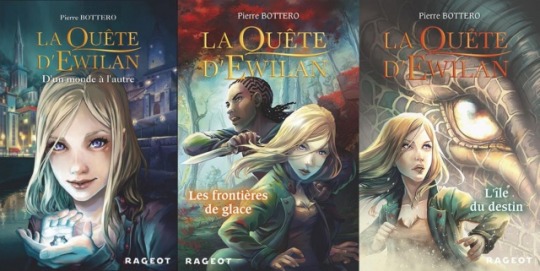
(It's a testament to how long ago I read these books that these are not the covers of the edition I own, and I can't even find those on Google. I'm settling for a more recent cover anyway since it'll make it easier to find them, presumably)
There are at least three trilogies (that I know of) set in the same world.
The first trilogy is essentially an isekai (so, French girl lands in parallel fantasy world by accident) with elements of chosen one trope, though I find the execution makes it worth the while anyway.
The second trilogy is a direct sequel, so same protagonist but new threat, and the world gets expanded.
The third one is centered around a supporting characters from the previous books, and the first couple of books in it are more her backstory than a continuation, though the third one concludes both that trilogy and advances the story of the other books as well.
Notably these books have a really fun magic system where the characters "draw" things into existence. It's just stuck with me for some reason.
A bunch of stuff by Erik L'Homme
I have read a lot of this man's books, starting with Le Livre des Etoiles.
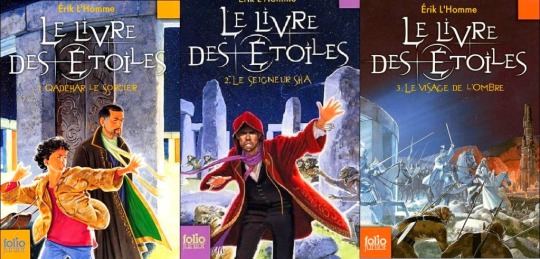
They also skew towards the young end of YA, arguably middle grade, I never bothered to figure out where to draw the line. They're coincidentally also using the premise of a parallel world to our own (and yes, connected to France again, the French are just as susceptible of writing about their homeland), but interestingly are set from the point of view of characters native to the parallel world.
It also has a very unique magic system, this one based on a mix of a runic alphabet and sort-of poetry. I'll also say specifically for these books that the characters stuck with me way more than others on this list, which is worth mentioning.
This trilogy is my favorite by Erik L'Homme, but I'll also mention Les Maîtres des brisants, which is a fantasy space opera with a pirate steampunk(?) vibe. I think it's steampunk. I could be mistaken. But it's in that vein. It's also middle grade, in my opinion not as good, but it could just be that it came out when I was older.
Another one is Phaenomen, which was a deliberate attempt at skewing older (though still YA). This one is set in our (then-)modern world and centers a group of teens who happen to have supernatural powers. I guess the best way to describe it is a superhero thriller? If you take "superhero" in the sense of "people with individualized powers", since they don't really do a lot of heroing.
...I really need to brush up on genre terminology, don't I.
The Ji series by Pierre Grimbert
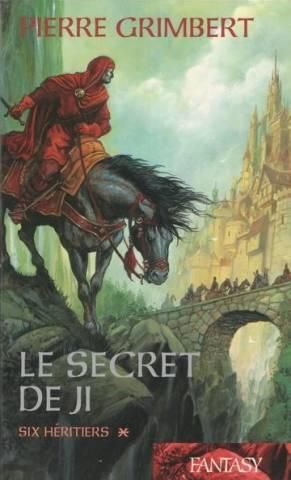
This one is actually adult fantasy, though it definitely falls under "probably outdated". It is very straight, for starters, and I'd have to give it another read to give a more critical reading of how it handles race (it attempts to do it, and is well meaning, but I'm not sure it survives the test of time & scrutiny, basically).
If I haven't lost you already, the premise is this: a few generations ago, a weird man named Nol gathered emissaries from each nation of the world and took them to a trip to the titular Ji island. Nobody knows what went down here, but now in the present day, someone is trying to kill off all descendants from those emissaries, who are as a result forced to team up and figure out what's going on.
I'm not going to spoil past that, though I will say it has (surprise) a really unique magic system! I guess you can start to piece together what my younger self was interested in. Which, admittedly, I still am.
Once again, this one also has a strong cast of characters, helped by rich world building and the premise forcing the characters to come from many different cultures (though, again, I can't vouch for the handling of race because it's been too long).
The first series is complete by itself, though it has two sequel series as well, each focusing on the next generation in these families. Because yes, of course they all pair up and have kids. Like I said: very straight.
A whole lot of books by Jean-Louis Fetjaine
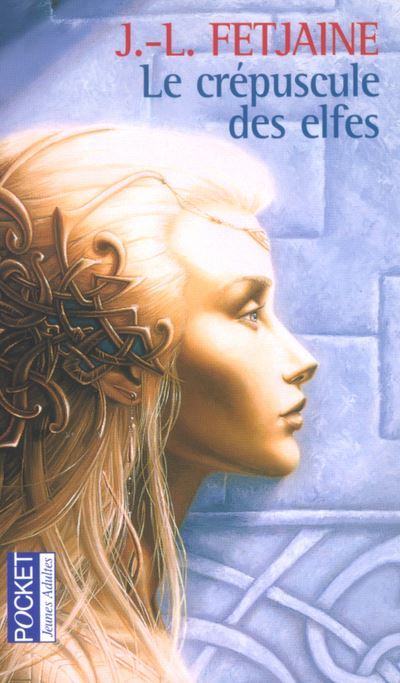
OFetjaine is a historian, and I guess he's really interested in Arthurian mythos especially, because he loves it so much he's written two separate high fantasy retellings of them! I'm not criticizing, mind you, we all need a hobby.
The former, the Elves trilogy (pictures above) is very traditional high fantasy. Elves, dwarves, orcs, a world which is definitely fictionalized with a pan-Celtic vibe to it. The holy grail and excalibur are around, but they're relics possessed by the elves and dwarves with very different powers than usual. Et cetera.
Fetjaine also really loves his elves (as the titles might imply), and while they're not exactly Tolkien elves, there's a similar vibe to them. If you like Tolkien and his elf boner, you'll probably like this too. And conversely, if that turns you off, these books probably also won't work for you.
This series also has a prequel trilogy, centered around the backstory of one of the main characters. I...honestly don't remember too much about it, but I liked it, so, there you go, I guess.
I said Fetjaine did it twice. The other series is the Merlin duology, which, as the title implies, is a retelling of Merlin's story. Note that Merlin is also in the other trilogy, but it's a different Merlin; like I said, completely different continuities and stories.
This one is historical fantasy, so it's set in actual Great Britain, and Fetjaine attempts to connect Arthur to a "real" historical figure...but, you know, Merlin is also half-elf and elves totally exist in Brocéliande, so, you know. History.
Okay, that's probably enough fantasy, let me give some classics too.
L'Arbre des possibles et autres histoires - Bernard Werber
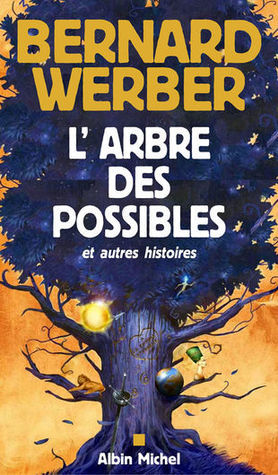
Bernard Werber is a pretty seminal author of French sci-fi and I should probably be embarrassed that the only book of his that I read was for school, but, it is a really good one, so I'll include it anyway.
It's a novella collection, and when I say "sci-fi" I want to make it clear that it's very old school science fiction. It's more Frankenstein or Black Mirror than Star Trek, what we in French call the anticipation genre of science fiction: you take one piece of technology or cultural norm and project it into the future.
It has a pretty wide range of topics and tones, so it's bound to have some better than others. My personal faves were Du pain et des jeux, where football (non-American) has evolved into basically a wargame, and Tel maître, tel lion, where any animal is considered acceptable as a pet, no matter how absurd it is to keep as a pet. They're both on a comedic end, but there's more heartfelt stuff too.
L'Ecume des Jours - Boris Vian
(no cover because I can't find the one I have, and the ones I find are ugly)
This book is surrealist. Like, literally a part of the surrealist movement. It features things such as a lilypad growing inside a woman's lungs (and, as you well know, lilypads double in size every day, wink wink), the protagonist's apartment becoming larger and smaller to go with his mood and current financial situation, and more that I can't even recall at the moment because remembering this book is like trying to remember having an aneurysm.
It is also really, really fun and touching. Oh, and it has a pretty solid movie adaptation, starring Audrey Tautou, who I think an international audience would probably recognize from Amelie or the Da Vinci Code movie.
I don't really know what else to say. It's a really cool read!
Le Roi se meurt - Eugène Ionesco
Ionesco is somewhat famous worldwide so I wasn't even sure to include him here. He's a playwright who wrote in the "Theater of the Absurd" movement, and this play is part of that.
The premise of this play is that the King (of an unnamed land) is dying, and the land is dying with him. I don't really know what else to say. It's theater of the absurd. It kind of has to be experienced (the published version works fine, btw, no need to track down an actual performance, in my humble opinion).
The Plague - Albert Camus
You've probably heard of this one, and if you haven't, let me tell you about a guy called Carlos Maza
youtube
I'm honestly more including this book out of a sense of duty. The other three are books I genuinely liked and happen to be classics. This book was an awful read. But, um. It's kind of relevant now in a way it wasn't (or didn't feel, anyway) back in 2008 or 2009, when I read it. And I don't just mean because of our own plague, since Camus's plague is pretty famously an allegory for fascism, which my teenage self sneered at, and my adult self really regrets every feeling that way.
Okay, finally, some more lighthearted stuff, we gotta talk about the Belgian and French art of bande dessinée. How is it different from comic books or manga? Functionally, it isn't. It really comes down more to what gets published in the Belgian-French industry compared to the American comics industry, which is dominated by superheroes, or the Japanese manga industry, which, while I'm less familiar with it, I know has some big genre trends as well that are completely separate.
The Lanfeust series - Arleston and Tarquin
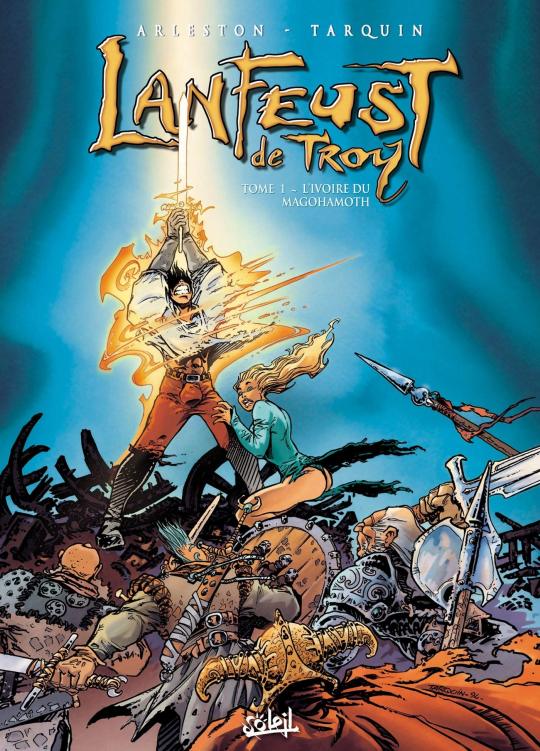
This is a YA mega-series, and I can't recommend all of it because I've lost track of the franchise's growth. Also note that I say "YA", but in this case it means something very different from an American understanding of YA. These books are pretty full of sex.
No, when I say YA I mean it has that level of maturity, for better or worse. The original series (Lanfeust de Troy) is high fantasy in a world where everyone has an individual magical ability but two characters find out they're gifted with an absolute power to make anything happen, and while it gets dark at times, it's still very lighthearted throughout, and the humor is...well, I think it's best described as teen boy humor. And it has a tendency to objectify its female characters, as you'll quickly parse out from the one cover I used here or if you browse more covers.
But still, it holds a special place in my heart, I guess. And on my shelves.
The sequel series, Lanfeust des Etoiles, turns it into a space opera, and goes a little overboard with the pop culture reference at times, though overall still maintains that balance of serious/at times dark story and lighthearted comedy.
After that the franchise is utter chaos to me, and I've lost track. I know there was another sequel series, which I dropped partway through, and a spinoff that retold part of the original series from the PoV of the main love interest (in the period of time she spent away from the main group). There was a comedy spin-off about the troll species unique to this world, a prequel series, probably more I don't even know exist.
Les Démons d'Alexia
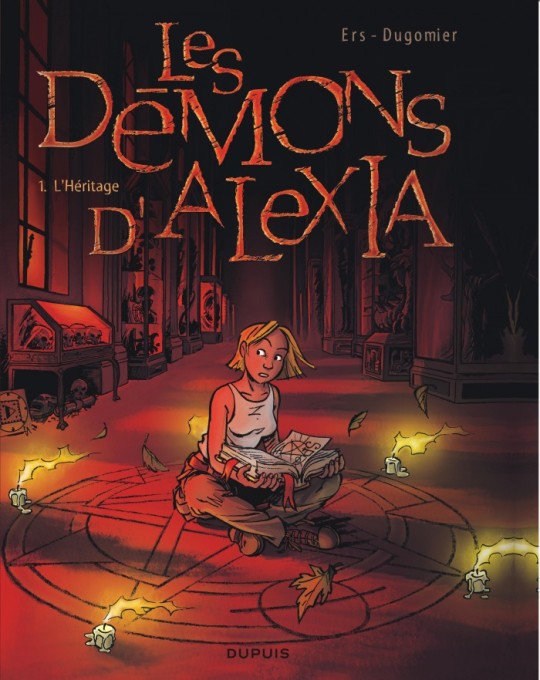
Something I can probably be a little less ashamed of including here.
Some backstory here. The Editions Dupuis are a giant of the Belgian bande dessinée industry, and for many, many years I was subscribed to their weekly magazine. That magazine was (mostly) made up of excerpts from the various books that the éditions were publishing at the time; those that were made of comic strips would usually get a couple pages of individual scripts, while the ongoing narratives got cut into episodes that were a few pages long (out of a typical 48 page count for a single BD album). Among those were this series.
For the first few volumes, I wasn't super into this series, probably because I was a little too young and smack dab in the middle of my "trying to be one of the boys" phase. But around book 3 I got really invested, to the point where I own the second half of the series because I had canceled by subscription by then but still wanted to know more.
Alexia is an exorcist with unusual talents, but little control, who's introduced to a group that specializes in researching paranormal phenomena, solving cases that involve the paranormal, that kinda stuff.
As a result of the premise, the series has a pretty slow start since it has to build up mystery around the source of Alexia's powers, but once it gets going and we get to what is essentially the series' main conflict, it gets really interesting.
Plus, witches. I'm a simple gay who likes strong protagonists and witches.
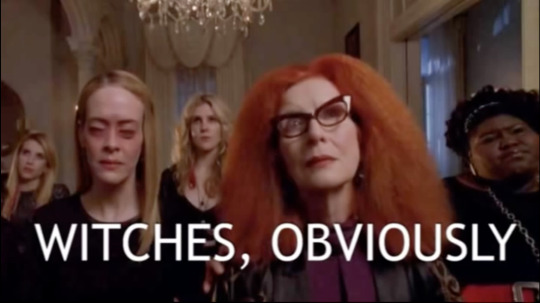
Murena
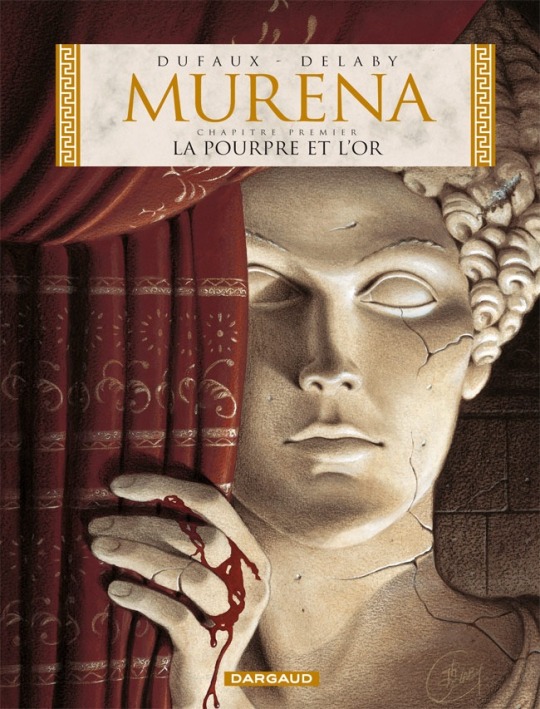
There was a point where my mtyhology nerdery led me to look for more stuff about the historical cultures that created them, and so I'd be super into stuff set in ancient Rome (I'd say "or Greece or Egypt" but let's face it, it was almost always Rome).
Murena is a series set just before the start of Emperor Nero's rule. You know, the one who was emperor when Rome burned, and according to urban legend either caused the fire or played the fiddle while it did (note: "fiddle" is a very English saying, it's usually the lyre in other languages). He probably didn't, it probably was propaganda, but he was a) a Roman Emperor, none of whom were particularly stellar guys and b) mean to Christians, who eventually got to rewrite history. So he's got a bad rep.
The series goes for a very historical take on events, albeit fictionalized (the protagonist and main PoV, the titular Lucius Murena, is himself fictional) and attempts to humanize the people involved in those events. Each book also includes some of the sources used to justify how events and characters are depicted, which is a nice touch.
It's also divided in subseries called "cycles" (books 1-4, 5-8 and the ongoing one starts at 9). I stopped after 9, though I think it's mostly a case of not going to bookstores often anymore. Plus it took four years between 9 and 10, and again between 10 and 11. But the first eight books made for a pretty solid story that honestly felt somewhat concluded as is, so it's a good place to start.
#pierre bottero#la quête d'ewilan#erik l'homme#le livre des étoiles#phaenomen#pierre grimbert#le secret de ji#jean louis fetjaine#la trilogie des elfes#bernard werber#l'arbre des possibles#boris vian#l'écume des jours#le roi se meurt#eugène ionesco#albert camus#la peste#the plague#lanfeust#arleston#tarquin#Les démons d'alexia#ers#dugomier#murena#dufaux#delaby#ask#anonymous#st: other posts
24 notes
·
View notes
Note
I just realized where we are rn in HxH is about Aug 2001. So now I am wondering if Togashi will have a special event corralating to 9/11 and I'm worried.
let me preface this response by saying I’ve been in research paper spiral for the last four months due to my impending advancement in june, and your question provoked a knee-jerk reaction that led to a 4h-long research spiral by someone whose specialty is absolutely not japanese foreign policy and nationalism.
the tl;dr version here, and then the explanation for it under the cut: I don’t think that’s going to happen. for one, they’re currently on a boat headed to Big Murderous Landmass (unless kurapika and co sink the whale). they’re not in yorknew/nyc. also, japan’s perceptions of 9/11 and the media representations of it are not as pervasive as american or even broader western collective trauma. while togashi is unafraid to address contemporary social politics, I don’t think he’s going to correlate a particular event to 9/11. he’s more concerned with the failings and strengths of humanity, as a whole or in parts, and might reference particular events to get across a greater point, not draw direct parallels.
now, a cut, and then several hundred words on 9/11 as a moment of collective trauma, japanese militarism, and media perceptions. it is 4000% nerdier than this ask expected.
I don’t think togashi is going to include a 9/11 parallel in a large part because of how japanese media, and anime in particular, addresses japanese communal trauma, and how togashi uses moments and evocations of these in his stories (at least, yyh, and hxh, although level e has its own quirks). namely that japan really doesn’t deal with 9/11 like americans do–but they absolutely have other traumas that make their way into anime, manga, and other media.
the thing is that, while 9/11 is absolutely a moment of international trauma (I work in india, and people there are highly conscious of it), the moment that hit the US was very different in other parts of the world. I’m old enough to remember the whole “where were you on 9/11,” itself a sort of marker of solidarity and belonging within the trauma that kind of unites people around a time. the plane crashes were broadcast everywhere in the US, and no one didn’t see it. but we got it live, fed right to the tvs in our classrooms at 8am. and america didn’t get attacked by foreigners before, not like this–problems existed “out there,” not in nyc, for however many times it’s been destroyed on film. (we have our own homegrown terrorists, but that’s a whole other can of worms.) and when it did happen, the country as a whole kicked into a jingoist gear on top of the collective trauma of someone murdering a bunch of americans. freedom fries. they were a thing.
it’s probably important to note here that media doesn’t exist in a vacuum. we’re perpetually influenced by things that happen, whether they’re collective and historical memories, personal experience, or social trends. we get our references and jokes from somewhere, and they sink into our brains and affect what we put out into the world. trauma does this more effectively than most things. trauma elicits a search for meaning, whether it’s a question of “why did it happen” or “why did it happen to me/us?” sometimes we find a meaning in the disaster, and sometimes we don’t. but it marks us and connects us (Halbswach 1992, Updegraff et al 2009). and it affects us for a long, long time.
in japan (and again, I’m not an expert on this), 9/11 is a moment of international trauma that marks japan’s re-entering into the international military sphere, but also economic flux. of the approximately 3000 people killed in the twin towers attack, 316 were non-american, including 26 japanese nationals. japan joined the war coalition almost immediately, and spent billions of USD to support the “war on terror,” while also dealing with things like shohei koda’s beheading in 2004 or the kidnapping and release of 5 journalists and anti-war NGO workers the same year, which arrived back in japan only to be ostracized for “causing trouble” for japan, with accusations that they had “got what [they] deserved” (x, x). the effect on the news media in japan was of increasing conspiracy theories and warmongering, while simultaneously wary of tensions with china, north korea, and taiwan. basically, japan politically and militarily had a lot of pots on the fire, and was feeding yen to the american pot real fast. the japanese SDF pulled out of central asia in 2007, and it’s still a divisive subject from the papers I read, but it’s more about the military than 9/11. 9/11 is not, for example, the topic of a j-drama directly or indirectly. shohei imamura’s short film “japan” in the september 11 (2002) anthology is a parable set during world war ii, although he’s much more famous for his palme d’or wins and a film about hiroshima (black rain, 1989). and uh. apparently pokemon black and white has a reference to ground zero in their map of not!nyc?
japanese media’s collective trauma in anime is often the deep personal connection with the atomic bomb, or terror attacks and natural disasters on japanese soil. which makes sense: humans will generally latch onto things that affect us personally, whether it’s a cute puppy video shown to us or an act of terrorism we watch on television. for the US, we were–and still are–being forced to confront our place in the international community (hero, victim, villain, collaborator, all of it–and americans are not very good at shades of gray) through the “war on terror,” and it comes out in everything from comic book movies like bvs directly evoking 9/11 while cavill!supes ruins buildings to kill zod, to the rise of partisan tv news. but we don’t evoke nuclear war or radioactive waste with the same reaction that japan does–there’s a lot of fear of the bomb in the 1950s and 1960s, like with dr. strangelove and them!, but it’s centered less around the impact of the bomb and its literal or metaphorical nuclear fallout, and more on the fear of the other or an outsider destroying good ol’ american culture. or giving us superpowers. (personally, the closest I think american art and literature ever got to japanese sentiments is with a canticle for leibowitz, which focuses on the cyclical nature of human failure and how the past becomes changed through the present.)
(please read a canticle for leibowitz, it changed my life and only grows more potent with age.)
for japan, the dropping of atomic bombs on nagasaki and hiroshima provides a similar and long-lasting moment of national trauma that’s been preserved in public policy and popular culture. and it’s not just grave of the fireflies or barefoot gen, anime that address the bombings through direct reference. the bomb transforms into concerns about nuclear destruction and environmental fallout, with kaiju like godzilla rising from nuclear waste. osamu tezuka’s work like astro boy is in direct response to the abuse and use of technology and hope for humanity’s future, and naussica of the valley of the wind is a fantasy post-nuclear bomb situation blended with hayao miyazaki’s love of humanity and nature (x, x). I think it’s worth noting that both tezuka and miyazaki personally experienced the 1945 bombings. miyazaki was 4, and one of his earliest memories is fleeing utsunomiya’s bombings. tezuka, at 16 and working in arsenal factories during the fire bombing of osaka, later wrote kami no toride (1977) about his personal experience, which served as both autobiography and condemnation of the vietnam war.
of more recent stuff evoking trauma, naoki urasawa actually uses 9/11 as a moment in billy bat, as part of getting to questions of humanity and modernity and technology and progress. other anime dealing with terrorism, like GITS:SAC, the “brain scratch” episode of cowboy bebop, and of course urasawa’s 20th century boys, locate terrorism not through 9/11 (and the underlying racism and not-us-ness) but more often with these japanese cults like the ‘aum death cult that carried out the 1995 tokyo subway sarin attacks, and the changing landscape of terrorism in japan. we could point to shinichiro watanabe’s zankyou no terror (or terror in resonance? iunno) as a potential 9/11 parallel, and I think it’s got the 9/11 connections, but watanabe himself places it closer to the 1995 terrorist attacks. he even commented how much “darker” zankyou no terror is than the film he was influenced by (the man who stole the sun (1979)), directly citing the 1995 attacks as one reason the last 30 years have impacted japanese understandings of terrorism. more recently, there’s also been connections to the 3/11 disaster with kimi no na wa, where shinkai explores his perennial theme of personal connection across space and time via a form of natural disaster. outside of anime, there’s also a growing body of literature on 3/11 and music, which is super interesting and well worth a look if you’re interested.
fwiw, I think it’s interesting that both urasawa and watanabe are explicitly interested in western and specifically american culture, but through a japanese lens. and not the sort of “japanese lens” that leads to the americas of g gundam or yugioh, which are The Most American Ever, but a more nuanced representation that explores technology, human connection, and modernity. which is the sort of lens creators should try to do when engaging other cultures, at bare minimum. (/soapbox)
trauma isn’t often addressed directly, but allegorically or displaced: lindsay ellis has a great pair of loose canon episodes on 9/11 and how film evokes collective trauma. while she doesn’t talk about anime or japanese films, she uses bollywood as a way to talk about indirect expressions of nationalist trauma. in the second video, she suggests that, for countries like india working through their own terror attacks with mumbai in 2008 (the 26/11 attacks), it’s easier to use other countries’ or places’ or–I would suggest–fantastical trauma rather than directly address it. so bollywood used 9/11 to understand its own trauma. not everyone does this–and a lot of times, I doubt it’s done purposefully, at least initially. but it’s there implicitly, informing decisions of artists and content creators that sometimes doesn’t get revealed until placed under a critical eye. it’s why editing and getting outside or sensitivity readers is important! for japan, the parallels aren’t to other countries, but fantastical situations in japan with Very Heavy Symbolism ranging from akira’s totally-not-a-bombs to kimi no na wa’s processing of the 3/11 disaster via comet.
as for togashi, he uses world events and figures as ways of exploring his own interests (yu yu hakusho has multiple “wow capitalism suuuuuuuuucks” subplots with yukina’s arc and the dark tournament, plus the very anti-war/anti-hate/anti-capitalism/”humanity sucks but people [kuwabara] can be amazing” sentiments of the chapter black tape; while hxh’s chimera ant arc has both a-bomb parallels and north korea/china references on top of killua’s soapbox about how corrupt and terrible governments can be). the parallel between “humanity sucks” and “people can be so very good” threads throughout togashi’s work. but it also uses a very buddhist understanding of rebirth and reincarnation to get these points across, whether it’s the unconditional vore love of pouf and youpi giving themselves to rejuvenate mereum after he’s nuked or the reincarnations of former humans as ants. but all of it connects to togashi’s personal experiences of things happening to and by japan, whether it’s the invasion of and tension with taiwan, the boom and bust of the economy, or the militaristic push by parts of the government under koizumi and abe. that, layered on top of the trauma that informs a lot of japanese media, makes for a fascinating playground togashi is more than willing to dig into.
I suppose this is all a very, very long-winded way of saying that while it’s possible togashi could include a 9/11 parallel, I don’t think it’ll be tied to some september 2001 date in the hxh universe. if he uses it, it will be 1: through a togashi/japanese lens; 2: unattached to a particular date; 3: layered in dialogue with broader war and terror issues togashi’s interested in exploring.
if you’ve made it to the bottom: holy crap congrats, hello, talk to me about anthropology of media. and if you’re somehow still interested in more, here’s an brief list of sources I used on top of the ones explicitly referenced in the post:
Baffelli, Erica. “Media and religion in Japan: the Aum affair as a turning point.” Working paper, EASA. 2008. (media-anthropology.net)
Broderick, Mick (ed.). Hibakusha Cinema: Hiroshima, Nagasaki, and the Nuclear Image in Japanese Film. Routledge and Kegan Paul International, 2014. (google books)
Deamer, David. Deleuze, Japanese Cinema, and the Atom Bomb: The Spectre of Impossibility. Bloomsbury Publishing, 2014. (google books link)
Japan pulls troops from Afghanistan (npr, 2007)
Japan ends ban on military self-defense (time, 2014)
Japan’s 10 years since 9/11 (al-jazeera, 2011)
Krystian Woznicki (September 1991). “Towards a cartography of Japanese anime – Anno Hideaki’s Evangelion Interview with Azuma Hiroki”. BLIMP Filmmagazine. Tokuma Shoten. (archived here)
manga responses to 3/11 (nippon.com, 2012)
Saft, Scott, & Yumiko Ohara. “The media and the pursuit of militarism in Japan: Newspaper editorials in the aftermath of 9/11.” Critical Discourse Studies, 3(01), 2006. 81-101
#hxh meta#japanese history#nuclear memory#symbolism#I'm so sorry#japanese media#9/11#26/11#3/11#all of the references#THIS is what I do for fun#...#sigh#long post#talk tag#Anonymous
33 notes
·
View notes